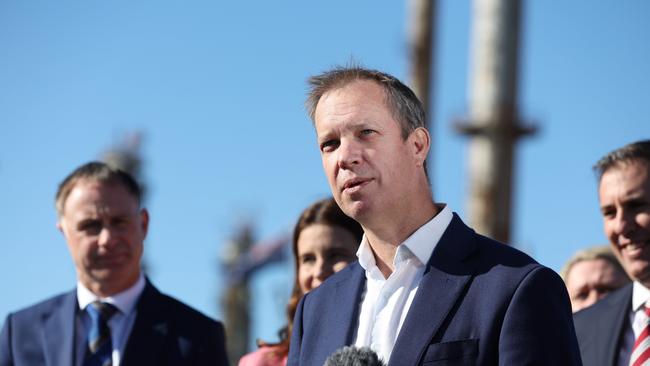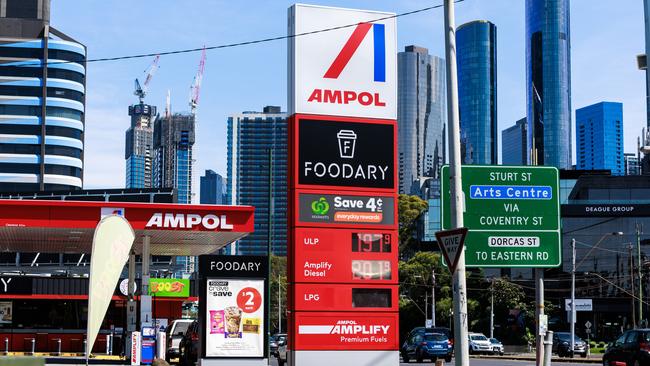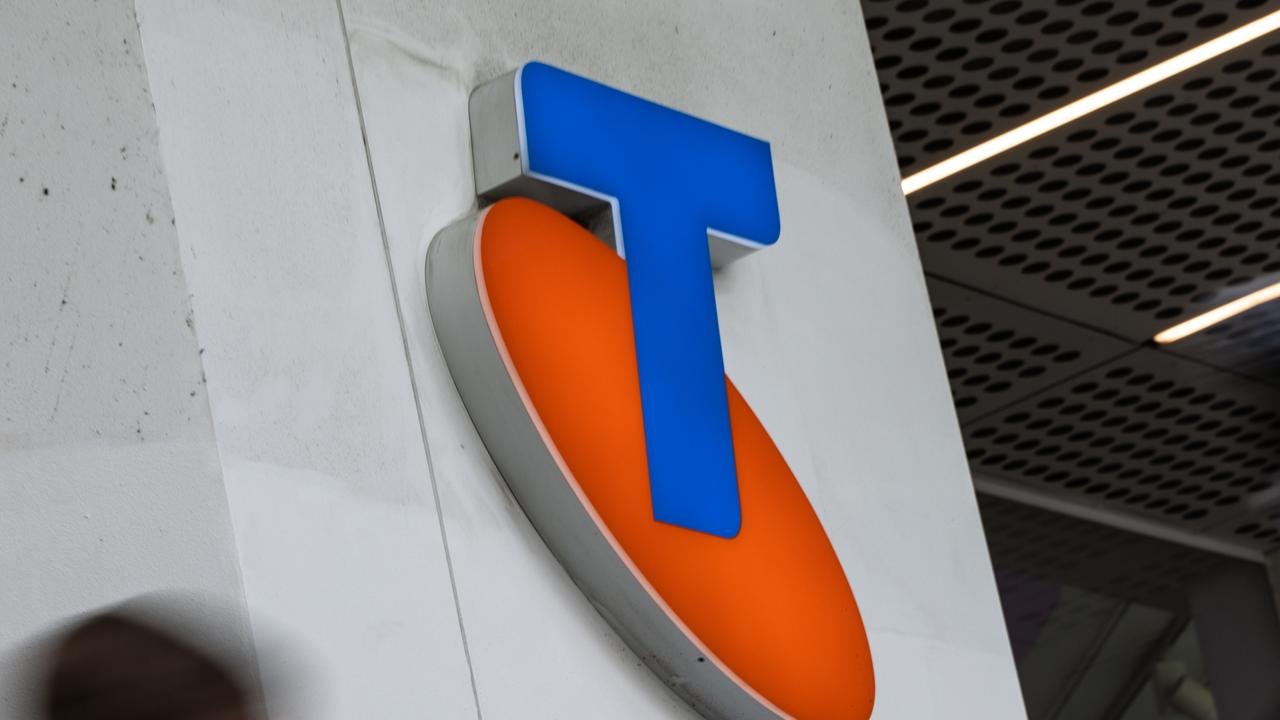Ampol exits electricity retailing as intensity shifts back to petrol stations
Ampol boss Matthew Halliday has ended its near three-year foray into energy retailing, and conceded it’s better served by focusing on its strengths and roots: petrol sales and quick-shop retail.

Business
Don't miss out on the headlines from Business. Followed categories will be added to My News.
Ampol has exited the retail electricity market where it was reselling power to the home for electric vehicle customers, deciding service stations are a better use of its time and capital.
It marks the end of a three-year experiment after striking deals to sell its Australian and New Zealand operations: 70,000 customers will move to AGL Energy in Australia and Meridian Energy in New Zealand. Meridian will pay Ampol $NZ70m ($64.4m), and AGL will pay a “nominal” sum. Ampol expects to save $30m a year.
Chief executive Matt Halliday said the decision was driven by recognition that the company’s participation in residential EV charging was better served through its roadside offerings, especially without sufficient scale to compete with the integrated generator-retailers like Origin Energy and EnergyAustralia.
“We do think there is merit and value for the customer in integrated solutions but finding scale is critical,” he said.
However, Ampol has found it difficult to get its network of on-road EV chargers rolled out as fast as it would like. It last year dialled back those targets, but not its ambitions, after struggling to secure the necessary grid connections despite federal Labor’s commitment to accelerating the energy transition.

The move into energy retailing was heralded by Ampol as a way to broaden its reach facing a decarbonisation movement that will eventually uproot its traditional business of fuel retailing. It had hoped to lure EV drivers with home electricity plans that also offered incentives for using Ampol’s on-road network. But the venture fundamentally needed better scale and profitability to sustain itself.
Mr Halliday said Ampol continues to believe customers want an integrated offering, but the company could do this by partnering with others. The deal with AGL includes an agreement to potentially partner with AGL and Meridian’s customers for discounts at Ampol’s EV charging infrastructure.
Shares in Ampol rose 2.2 per cent after the announcement, indicating investor support for folding the scheme in a broader market that rallied 0.4 per cent.
“I wasn’t a fan of the strategy. To the company’s credit, they have recognised it wasn’t going to work and got out quickly,” said an Ampol shareholder who declined to be named because they were not authorised to speak publicly.
Ampol’s retail strategy was already facing significant hurdles. Unlike heavyweights such as AGL and Origin that own power generators such as coal stations, Ampol was acquiring electricity to meet its customers’ usage – an expensive operation, especially as wholesale energy prices surged – without a large customer base.
The rise of EVs has also been slower than many forecasters anticipated as Australia lags behind other peers like Europe.
Ampol is rolling out fast chargers across its petrol station network, but is keen not to get ahead of demand.
Labor has made bolstering EV sales a key objective and implemented lucrative tax incentives to bolster uptake. Yet while demand has been small, the number of people using the tax benefits has exceeded official estimates.
Labor hopes a rapid rise in EVs will help deliver its emissions reduction plan, which requires Australia to reduce emissions by 43 per cent by 2030 and be net zero by 2050.
The pace of EV adoption is consequential for Ampol and its own charging infrastructure rollout. Moving too slow will see it miss out on early adopters, and some analysts expect demand for EVs to recover as interest rates keep falling, and the cost-of-living crisis begins to ebb.
Mr Halliday expects steady but not explosive growth in demand.
“It is going to be bumpy. The state of the economy will play a role, but the technology continues to evolve and there is policy in place to ensure there is an uptake. It is going to take some time,” the Ampol boss said.
Others disagree that commercial providers will play a leading role. Australia has the world’s largest proliferation of rooftop solar and many users are going to prioritise at-home charging, though this will need to be supplemented by on-road charging.
Ampol and rival Viva hope EV drivers will use their petrol station sites, but motorists can also charge while shopping at supermarkets. To mitigate the competitive threat, both Ampol and Viva have aggressively bolstered their retail presence.
Originally published as Ampol exits electricity retailing as intensity shifts back to petrol stations





